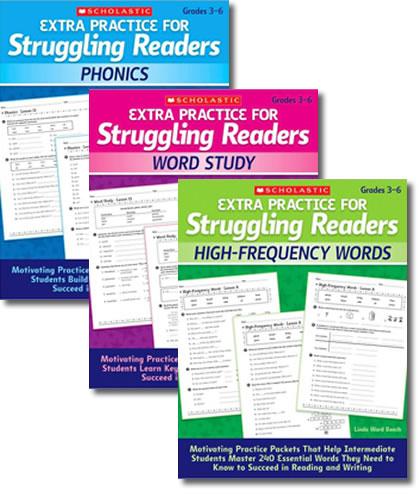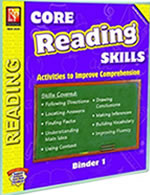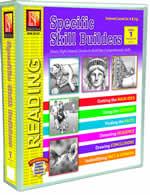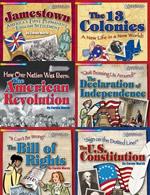Extra Practice for Struggling Learners:
Interest Level:
Reading Level:
Gr. 3–6
Reproducible
Additional Components:
Reproducible Activities and Lessons
Help students build essential decoding skills to succeed in reading and writing!Phonics: While phonics instruction is important for all readers, it is essential for older students whose underdeveloped reading skills impede content-area learning. This resource offers dozens of practice pages that give struggling readers multiple opportunities to recognize, review, and reinforce must-know phonics elements, such as consonants, long and short vowels, blends, digraphs, and more. With this...
Help students build essential decoding skills to succeed in reading and writing!
Phonics: While phonics instruction is important for all readers, it is essential for older students whose underdeveloped reading skills impede content-area learning. This resource offers dozens of practice pages that give struggling readers multiple opportunities to recognize, review, and reinforce must-know phonics elements, such as consonants, long and short vowels, blends, digraphs, and more. With this practice, students dramatically improve their ability to recognize sound-spelling relationships and use these skills to accurately andefficiently decode words, which in turn boosts fluency and comprehension. 80 pages.
Word Study: When successful readers encounter unfamiliar words, they utilize strategies— for example, identifying word parts such as syllables and suffixes—to help them figure out pronunciation and meaning. This resource offers dozens of practice pages that give older struggling readers multiple opportunities to review and apply these word-study skills, recognize common spelling patterns, boost their word recognition and vocabulary development, and gain confidence as they read and encounter new words. As a result, studentsbecome more fluent readers. 80 pages.
High-Frequency Words: Often called “sight words” because readers need to know them at a glance, high-frequency words can prove challenging for students. This resource offers dozens of practice pages that give older struggling readers multiple opportunities to review and really learn common tricky words—such as which, listen, enough, and answer—that aren’t easily decodable and don’t follow the usual sound-spelling relationships. When students can identify high-frequency words quickly and accurately, their reading fluency increases, and their reading comprehension improves. With repeated practice, students develop automatic recognition of dozens and dozens of words and becomemore fluent readers. 80 pages.
Item #
Products
Price
Wishlist
Qty
Requested quantity is not available at this time
Extra Practice for Struggling Learners: Phonics
$12.99
Requested quantity is not available at this time
Extra Practice for Struggling Learners: Word Study
$12.99
Requested quantity is not available at this time
Extra Practice for Struggling Learners: High-Frequency Words
$12.99
Requested quantity is not available at this time
SC3334WB
Extra Practice for Struggling Learners (Set of 3 Books)
$38.00




